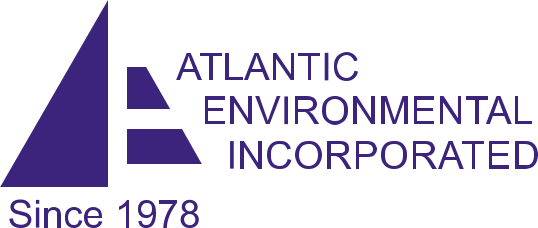If you need an Industrial Hygienist or a Certified Industrial Hygienist (CIH) discussed in this article, call us at 973-366-4660 or e-mail us at info@atlenv.com for details and a free estimate.
Written By: Robert E. Sheriff, CIH, CSP, President
February 20, 2020; updated October 2021
What is a Certified Industrial Hygienist (CIH)?
What is an Industrial Hygienist? The simplest definition is “a person whose job it is to protect the health of workers and the general public”. Through education and experience, an Industrial Hygienist is able to recognize health hazards, test the environment for those hazards, determine if there is a risk to human health in a particular situation, and recommend controls or means of protection from the recognized health hazard. Industrial Hygienists can also assist in developing worker protection plans, perform audits, and educate and train management and workers. Many Industrial Hygienists have Master’s Degrees or Ph.Ds.
A Certified Industrial Hygienist (often referred to as a CIH) is one who has a certain level of education (a bachelor’s degree in science or engineering, or greater), a minimum of four years of experience as a full-time practitioner in industrial hygiene, a strong education in industrial hygiene subjects, and has passed a very rigorous national exam.
An Industrial Hygienist must be proficient in a wide range of technical areas to practice as an IH and even more so as a CIH.
The Rubrics (Fields of Study) in Which an IH Must Be Proficient in Includes:
- Air Sampling and Instrumentation.
- Analytical Chemistry.
- Basic Science.
- Biohazards.
- Biostatistics and Epidemiology.
- Community Exposure.
- Engineering Controls/Ventilation.
- Ergonomics.
- Health Risk/Hazard Communication
- IH Program Management.
- Noise.
- Non-Engineering Controls.
- Radiation-Ionizing and Non-Ionizing.
- Thermal Stressors.
- Toxicology.
- Work Environment and Industrial Processes.
A Certified Industrial Hygienist (CIH) should be knowledgeable in all aspects of protection of the health of workers and the general public; however, many CIH’s are employed by corporations and government agencies and may be involved in a narrower list of activities and responsibilities.
The independent group that certifies Industrial Hygienists is the American Board of Industrial Hygiene (ABIH). You can search their public roster to determine if an individual is actually a CIH by going to www.abih.org.
Certified Industrial Hygienists are a subset of a group called Environmental, Health, and Safety experts. A CIH’s main focus is on the health aspect: Occupational Health and Environmental Health, including:
- Human exposure to chemical, biological, physical, and other hazardous contaminants (testing/sampling, control, and understanding their effects) both at work and in non-occupational situations.
- Emergency response planning
- Organization-wide health and safety planning.
- A very specific code of ethics where the protection of the workers and the public is paramount.
If you’re concerned about whether your factory, warehouse, office, public building, or residence has something that may adversely affect your health and/or the health of other employees, then contacting a Certified Industrial Hygienist (CIH) is a good choice. It may not be necessary to retain a CIH to do testing work (as a cost-control measure) but it is always best to have that work done by an Industrial Hygienist who is under the direct supervision of a Certified Industrial Hygienist. That way you are ensuring that an expert is ultimately responsible for the quality of the work.
For more information contact Atlantic Environmental.
Our primary service areas are New Jersey NJ, New York NY, (New York City), Pennsylvania PA, Connecticut CT, Delaware DE, Massachusetts, (Boston) MA, Rhode Island RI, Washington DC, Wisconsin WI, Maryland MD, Michigan MI, Illinois (Chicago) IL, Virginia VA, Indiana IN, Georgia (Atlanta) GA, Alabama AL, North Carolina NC, South Carolina SC, Tennessee TN, Texas (Dallas, Ft Worth) TX, Oklahoma OK, DC, Arkansas AR, Florida FL. We can service most other areas of the U.S. but additional travel charges will be applied.



